- Home
- slideshows
- miscellaneous
- Meet the traders, investors, and technologists pioneering crypto on Wall Street
Meet the traders, investors, and technologists pioneering crypto on Wall Street
Toby Allen, Akuna Capital

Spencer Bogart, Blockchain Capital
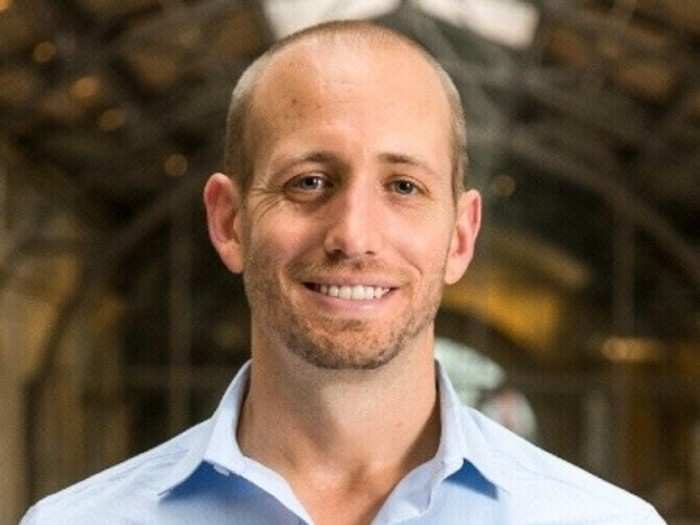
Spencer Bogart was one of the first Wall Street analysts to cover bitcoin and the world of blockchain as an equity research analyst at Needham & Co.
He joined Blockchain Capital, one of the oldest VC firms dedicated to investing in projects in the crypto market, in February 2017.
Blockchain Capital manages $250 million across a number of funds, having invested in a number of decentralized crypto exchanges and Bitwise, the crypto asset manager, as well as other companies spanning the crypto market. Recently, the firm has been spending a lot of time exploring opportunities in decentralized crypto exchanges.
Max Boonen, B2C2
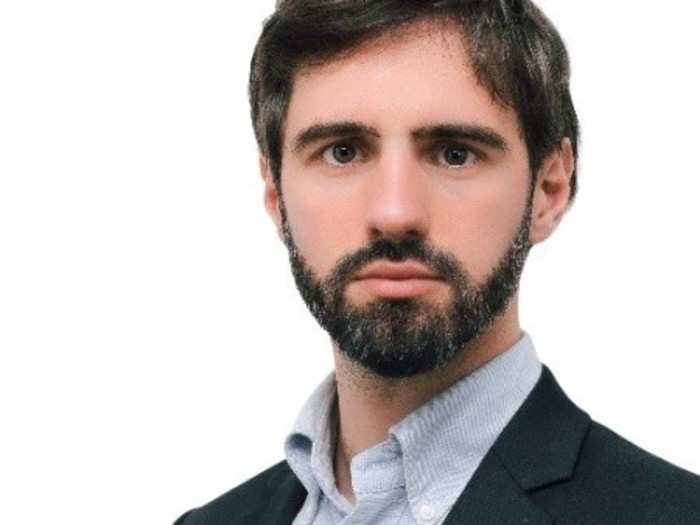
When Max Boonen, a former trader at Goldman Sachs, founded B2C2, he aspired to build a Wall Street-like company for bitcoin.
Those aspirations have been reflected in the team it has built and the advisers it has brought on. The company, which sometimes conducts trades larger than $50 million, recently brought on three finance veterans to its advisory board, including Citigroup's global head of regulatory, market, and innovation strategy.
B2C2 recently expanded into Asia markets via a new desk in Japan, Business Insider previously reported. Further expansion of its business in Asia is a big focus for 2018.
The company is also getting ready to launch contracts for difference, a financial product that allows investors to bet on bitcoin price swings. The company hopes the product, which is in final testing, will bring in brokerage clients.
Nitai Bran, TradeBlock
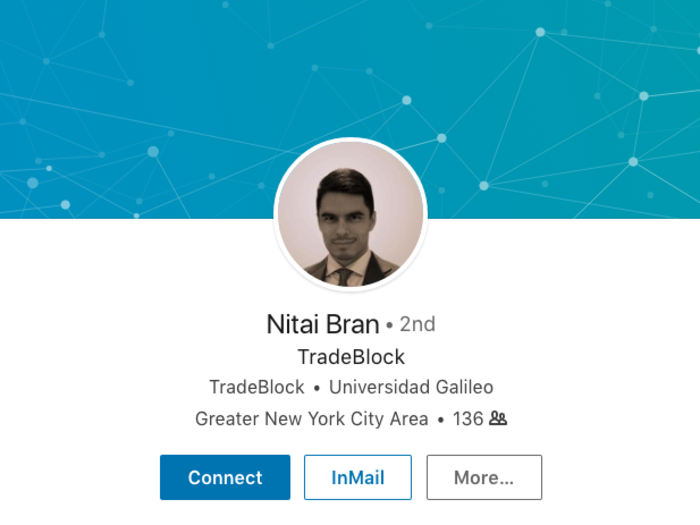
TradeBlock is at the center of crypto prop shop scene. A technology company that provides software and tools for some of the largest trading firms in the market for digital coins, its clients include Cumberland, Genesis, DV Chain, and Circle.
At the helm is chief executive Nitai Bran, a former consultant who caught the crypto bug while he was running CogBI, a consultancy he founded in 2012.
Bran joined TradeBlock in 2016, soon after its parent company, Axoni, landed a fundraising round involving a slew of Wall Street banks, including JPMorgan, Citigroup, and Credit Suisse. TradeBlock later spun out of Axoni.
In addition to providing tools that allow users to communicate with counterparties, TradeBlock also provides a US dollar denominated reference rate for digital currencies, which is used by a number of investment trusts and funds. Such firms use the rate to price their funds.
Andy Bromberg, CoinList
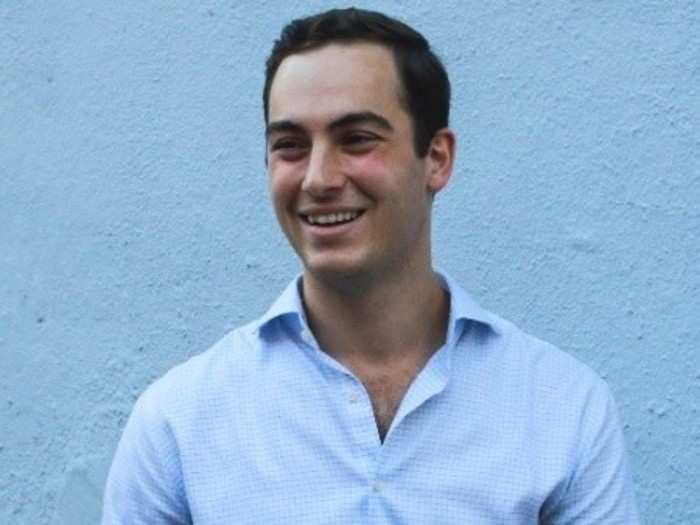
Andy Bromberg founded CoinList, a company that aims to connect investors with cryptocurrency projects, just a year out of college in 2017.
The 23-year-old entrepreneur's young company has already hit a number of milestones, including a $9.2 million fundraise. CoinList's platform has facilitated over $400 million worth of cryptocurrency investments. Its infrastructure supported the initial coin offerings of Filecoin, which raised $205 million.
The company is also working on a secondary marketplace, for which it is lining up market makers; it will support trading for all sorts of cryptocurrencies, initial coin offerings, and tokenized assets.
Bromberg, a Stanford grad, formerly founded a media startup that shut just before CoinList.
Bobby Cho, DRW
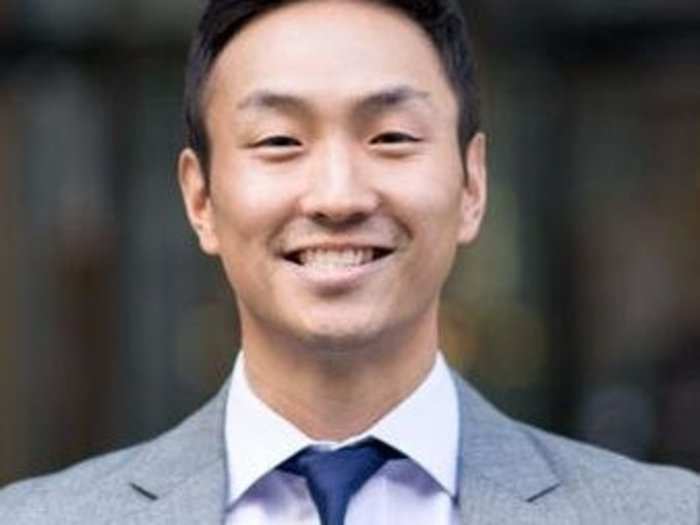
Don Wilson's DRW is one of the best-known trading firms in the US. At the center of its crypto efforts is Bobby Cho, the head of over-the-counter trading at Cumberland, DRW's crypto unit.
Cho, who joined DRW in 2016, has pushed the unit to new heights, frequently conducting trades in the $1 million to $5 million range and expanding into new markets such as Singapore, first reported by Business Insider. Cumberland also operates trading desks in London and Chicago.
Before joining DRW, Cho was the director of trading at itBit Trust Co., where he was charged with leading the business for crypto trading and custody. He also held roles at SecondMarket.
The Villanova University graduate is a mentor for Plug and Play, a Sunnyvale-based innovation hub.
Paul Chou, LedgerX

CME and Cboe's bitcoin derivatives markets weren't the first to open in the US. That distinction goes to LedgerX, a trading platform for options and swaps.
Paul Chou, a former Wall Street trader, saw the opportunity for a derivatives platform five years ago when the market cap for digital currencies was $1 billion. Although it was launched in 2013, options trading on the platform didn't start until October 2017. Since then, volumes and average trading size have grown 50% month over month.
After studying at MIT, Chou worked at Goldman Sachs as a trader for four years. But his heart was in technology. In 2011, he jetted off to Silicon Valley to found Opez, a company that developed mobile applications. It was in Mountain View where Chou first got interested in bitcoin.
At LedgerX, the average trade size is now $70,000, and the company is moving to a bigger office. It is also preparing for one or two major investment banks to dive into the market for digital currencies. At least one will start trading on LedgerX this year, Chou said. In total, $125 million worth of derivatives have traded on the platform since launch.
Joe DiPasquale, BitBull Capital
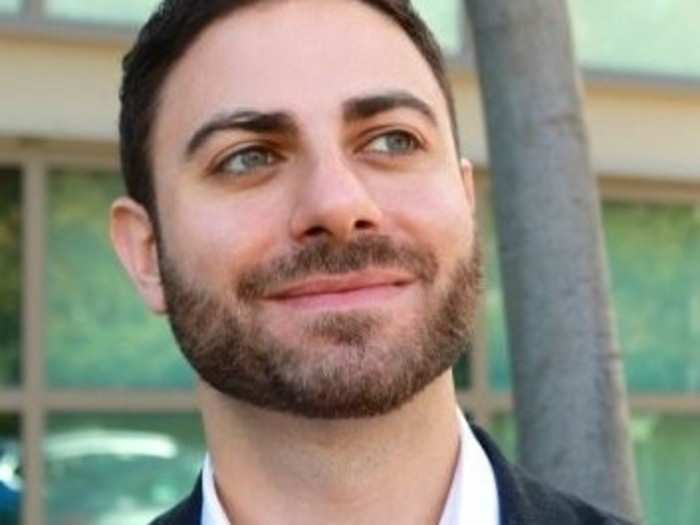
BitBull Capital, a crypto fund of funds founded by Joe DiPasquale, was born out of StartX, a Stanford University incubator. The fund now manages $25 million.
A Stanford Business School graduate, DiPasquale founded the fund in December 2016. He pooled capital, initially from mostly friends and family, in late September 2017. And then put that money in some of the best-performing quant funds and active managers.
Previously, DiPasquale founded Regroup, a communications technology company.
Eric Ervin, Reality Shares

Eric Ervin's Reality Shares is a small asset manager riding the crypto wave.
The firm saw its assets under management double when it rolled out its blockchain exchange-traded fund. The fund, which trades on the Nasdaq, now manages more than $100 million. It is working on getting a second blockchain ETF approved.
Ervin founded the company in 2011. While most of the headlines the company has made recently have pertained to blockchain, it is setting its sights on digital assets.
Currently, the company is stealthily working on a cryptocurrency robo-adviser product, which is known internally as "on ramp."
The company has spoken with Gemini, the cryptocurrency exchange, about the product.
Ervin previously worked at Citigroup and Morgan Stanley.
Adele Faure, Robinhood
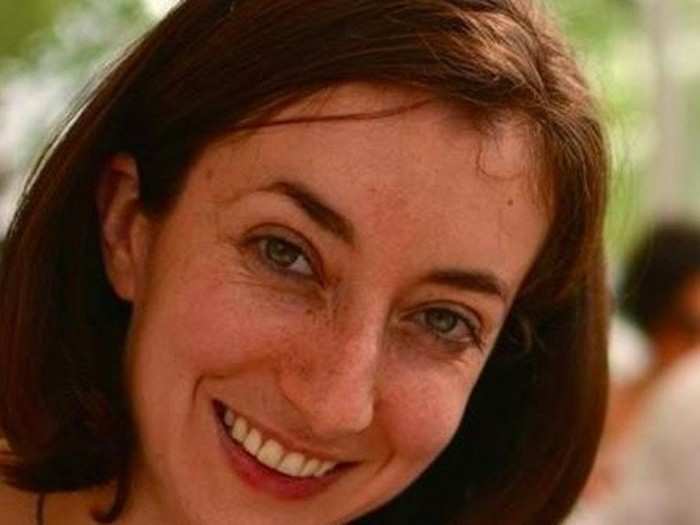
The market for cryptocurrencies has been plagued with regulatory uncertainty, making smart legal counsel a must for any operation.
Adele Faure played a key role in helping Robinhood, the brokerage known for pioneering free investing for stock trading, launch its crypto unit Robinhood Crypto. Before the rollout of Robinhood Crypto, which went live earlier this year in select US states, Faure developed an understanding of how the law applies to crypto in each individual state to inform the development of the product.
She was an associate at Covington & Burling LLP before joining Robinhood. The Yale Law School graduate worked for the World Bank in Southern Africa before her studies.
Lior Glass, BNYMellon
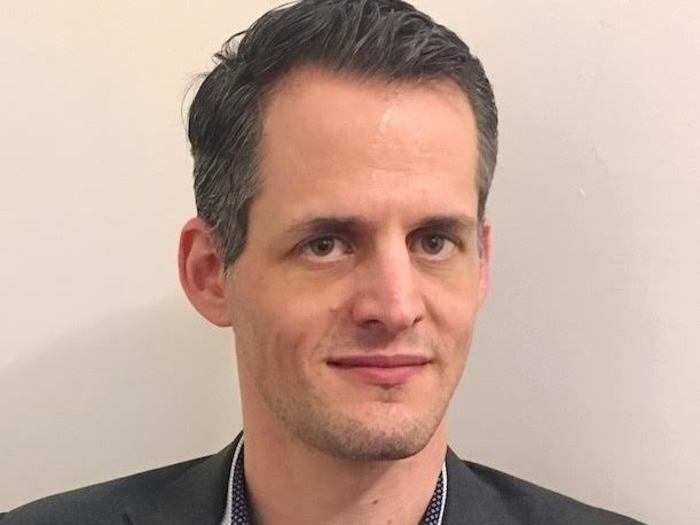
Lior Glass is the go-to guy at BNYMellon for all inquiries related to blockchain and cryptocurrencies. His title gives it away: principle blockchain business expert.
Glass, who joined the firm in July 2017, assists with inquiries relating to blockchain and digital assets for folks within the firm and its clients. He also helps identify opportunities within the bank pertaining to crypto.&
BNYMellon, the custodian bank, is known for being the transfer agent for the Bitcoin Investment Trust, a bitcoin-linked financial product.
Before joining BNYMellon, Glass was a senior associate at PwC. He is a board member on the Enterprise Ethereum Alliance.
Gabor Gurbacs, VanEck
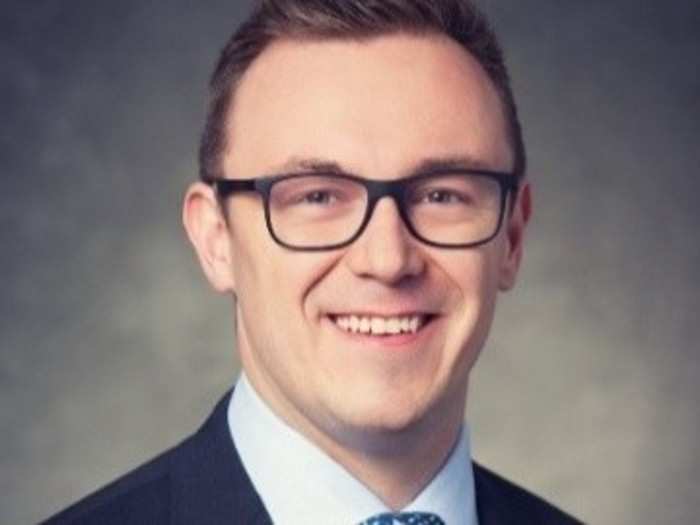
All VanEck's recent moves in the crypto market can be traced back to Gabor Gurbac, the company's director of digital asset strategy. He led the development of the $50 billion money manager's bitcoin-futures-linked exchange traded fund, along with 12 digital asset indexes and seven index baskets.
Regulatory pressure pushed VanEck to withdraw its application for the exchange traded fund, but the company's crypto ambitions have not been dampened. Gabor and his team are working with trading firms, banks, and other market participants to get them up to speed on cryptocurrencies and the ecosystem. In addition, the company is building out its index suite and working on getting its ETF off the ground.
VanEck plans to be at the forefront of the next generation of digital assets, leading efforts in the tokenization of everything from real estate to stocks.
Gabor joined the firm in 2014, originally as an exchange traded fund data analyst on the company's product management team. He went full crypto in October 2017. It was a natural move for Gabor, an early investor in the ethereum network (he got in back in 2012), whose academic interests in mathematics took him to Williams College, Harvard, and MIT.
Nick Gustafson, Kraken
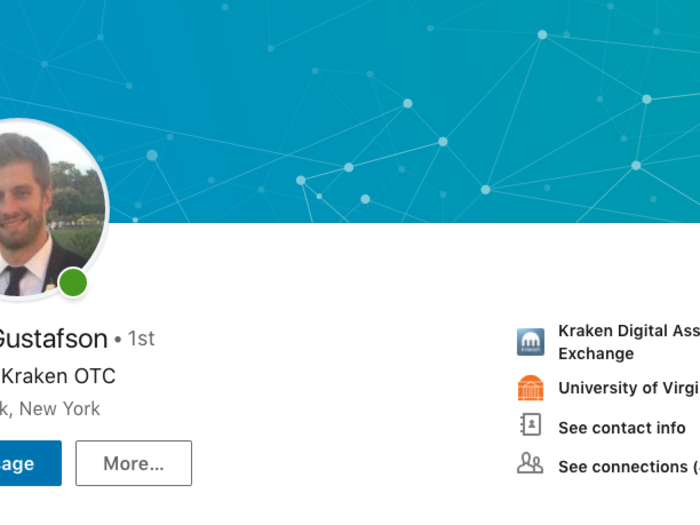
Kraken has been on a hiring spree, and many of those new hires hail from Wall Street.
Nick Gustafson, a former senior vice president at Jefferies, the investment bank, is among those new hires. He's based in New York, leading efforts for Kraken's over-the-counter trading shop. The outfit is relatively new and is assisting a few of the exchange's clients. Gustafson is based in New York.
Before joining Jefferies, where he worked for just six months, Gustafson was a director at UBS. The University of Virginia graduate has also held positions in credit trading at JPMorgan and Macquarie.
Kraken, which aims to focus on a more institutional clientele, has been working closely with high-frequency-trading firms and market makers to roll out new products.
Matt Hougan, Bitwise Asset Management
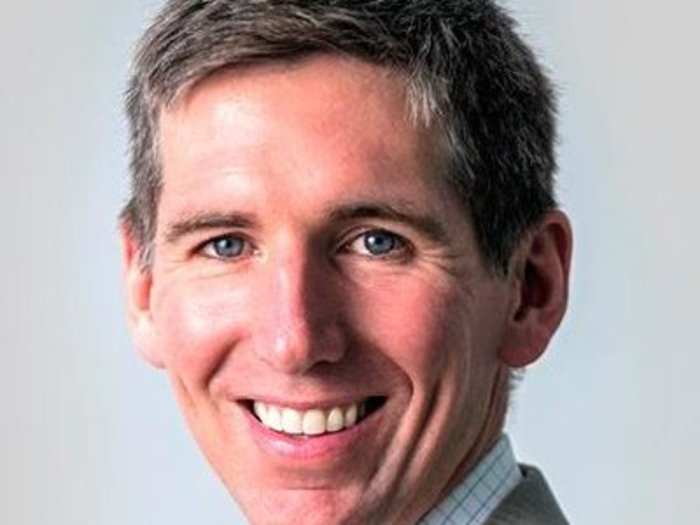
Matt Hougan, a 15-year veteran of the ETF industry, dove into the world of cryptocurrency this year. The former chief executive of the think tank Inside ETFs joined the California-based Bitwise Asset Management as VP of research and development in February. A few weeks later he landed a new title: global head of research.
Hougan got his start at MetaMarkets, which created the world's first transparent mutual fund, OpenFund. Hougan managed roughly 10% of the portfolio, with a focus on biotech stocks. He later made his mark in the exchange-traded fund industry, serving as the president and then CEO of ETF.com.
Bitwise, which offers accredited investors access to a number of passive-crypto funds, has started to put out research. Hougan is leading those efforts.
Peter Johnson, Jump Capital
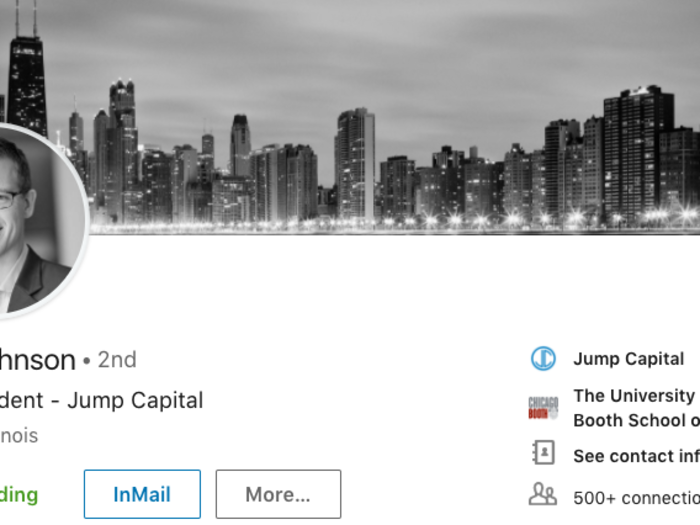
Peter Johnson is a vice president at Jump Capital, the venture arm of Jump Trading, which is known to trade in crypto markets.
Johnson, who is "very bullish" on the future of cryptocurrency, has spearheaded research efforts in crypto at both Jump Trading and Jump Capital to help understand the nascent market. You can read more about his views on cryptocurrency here.
Both Jump Trading and Jump Capital started exploring the crypto space in 2014. Jump Trading trades across crypto futures and crypto markets, including bitcoin and ethereum. Johnson now spends nearly all his time of his time focused on the space.
Jump Capital, which doesn't invest in initial coin offerings, is seeking out top-tier companies developing technologies that can help make crypto a mainstream asset. Johnson also sits on the board of Personal Capital. He previously was a consultant at Deloitte and an investment banker at Morgan Stanley.
Travis Kling, Ikigai Asset Management
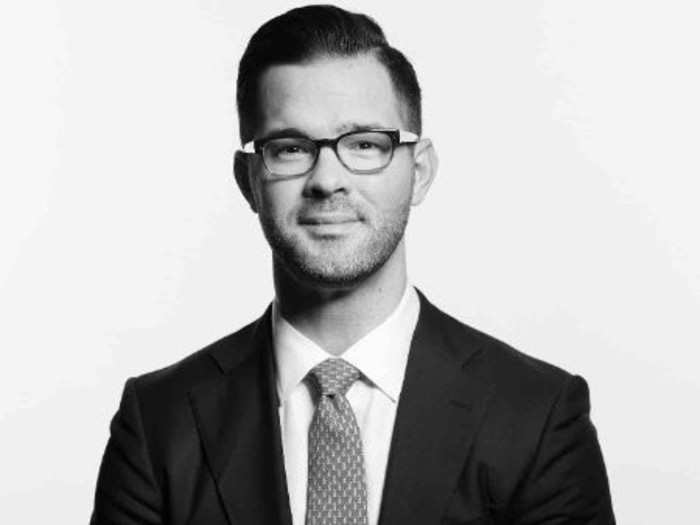
Travis Kling left Point72 Asset Management in December to join the legion of crypto hedge-fund hopefuls.
Over 220 such funds have launched, according to data provider Autonomous NEXT. But few crypto-fund founders have a background in asset management, and most manage less than a couple million dollars. Kling first got interested in the space in September and spent much of his spare time reading up on the nascent market for digital currencies.
Kling has already locked down seed investments for the fund and is actively pitching more investors. It is set to go live this summer with $25 million under management. Kling and his two partners expect the fund to manage $50 million by year's end. The firm is a bidirectional, multistrat-focused fund.
Kling, who worked at Steve Cohen's Point72 from 2015 to 2017, joined the firm from Magnetar Capital. He is among the only folks from the traditional hedge fund world to dive into crypto, most notably following the lead of Mike Novogratz, a former portfolio manager at Fortress.
James Koutoulas, Typhon Capital Management
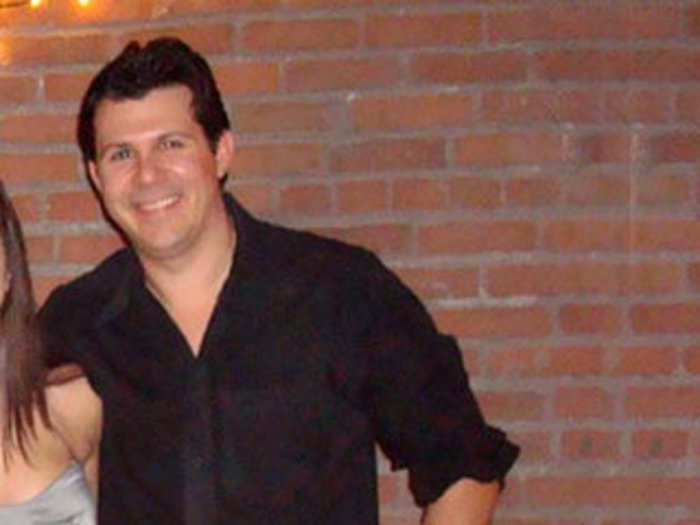
Typhon Capital was one of the first traditional hedge funds to dive into the market for digital currencies.
CEO James Koutoulas has dabbled in law, technology, and finance during his nearly 20-year professional career. The University of Florida-graduate, made headlines in the aftermath of MF Global as "the boy wonder" of the firm's bankruptcy, working to win back millions of dollars for investors who lost money from the event.
The company, which traditionally has invested in commodities and futures, manages $80 million. Its flagship metals fund has annualized 18.5% since 2011.
Typhon launched its cryptocurrency funds in 2018. The first, a short-term quant fund, invests in bitcoin futures in managed accounts. It also offers a diversified fund that invests in crypto derivatives, cryptocurrencies, and initial coin offerings trading in secondary markets.
Koutoulas is an adviser for Basecoin.
JB MacKenzie, TDAmeritrade
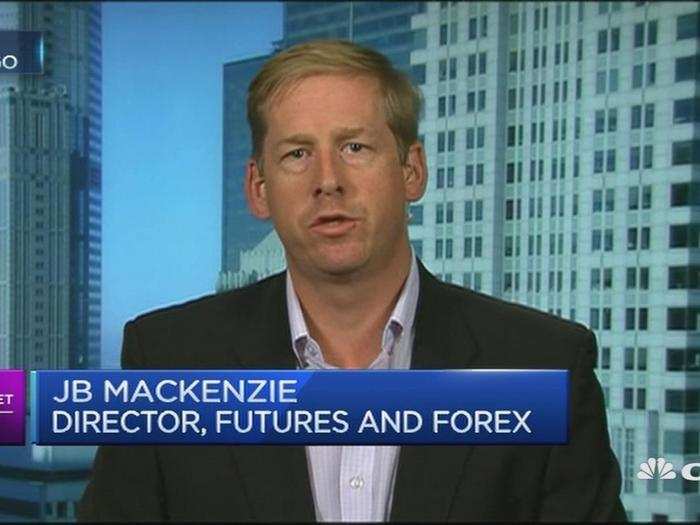
It was one thing for bitcoin futures to launch, but that didn't guarantee that scores of mom-and-pop investors would have the opportunity to immediately dive into the market via their broker. That decision was left up to folks like JB MacKenzie, the managing director of futures and forex at TDAmeritrade.
In the aftermath of the bitcoin futures rollout, MacKenzie watched the market and gave the green light for clients of the firm to trade only when the liquidity was just right. So far, only Cboe has the right about of liquidity. TD Ameritrade's still not letting clients trade on CME.
MacKenzie and his team are doing their part to help educate clients about the cryptocurrency market. The firm has been putting out educational videos to help explain how crypto products can be used in their portfolio.
JB, who started at TDAmeritrade in 2011, joined from the electronic-trading world. He was a vice president at MF Global. He graduated from Middlebury College with a degree in biology and psychology in 1997.
Lynn Martin, ICE
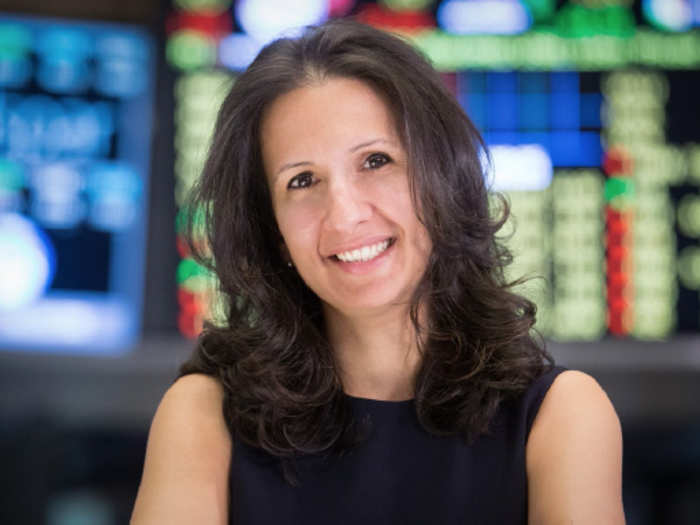
Lynn Martin, president and COO of ICE Data Services, runs a business that brings in 50% of the exchange's revenues. It was also the first to dive into the market for cryptocurrencies in a meaningful way.
The data product it launched in March aims to bring transparency to an opaque marketplace, which is known for wild price swings and large spreads. The feed transmits data that covers about 65% of the actual market covering 18 exchanges and six cryptocurrencies.
Martin, who started at the New York Stock Exchange (the exchange operator owned by ICE) in 2001, is a self-described quant at heart. She has led ICE since the unit formed in 2015.
The crypto-data product is just one of the many projects her team has worked on. Recently, the unit acquired Merrill Lynch's global research index platform.
Martin is working on identifying new opportunities in data services with her team that can help clients. To that end, they are looking at improving the original crypto data product by adding full market depth, data on spreads between exchanges, and deeper analytics.
Martin, a Manhattan College graduate, also worked at IBM during her career.
Tim McCourt, CME
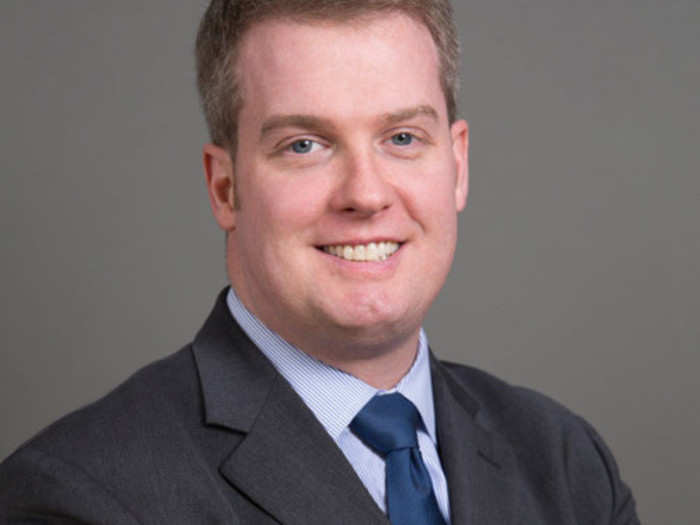
Tim McCourt had a long career in derivatives, spending 10 years at JPMorgan in sales and trading. He joined CME in 2013 after a three year stint at RBS, where he built the bank's swap trading desk into a $15 billion business.
As global head of equity products at CME, McCourt leads heads up the development and management of the exchange's equity index and alternative investment products. McCourt's exploration of bitcoin futures started to ramp up in the Spring of 2016, soon after the exchange announced its reference rate for bitcoin.
The moment marked a palpable change at CME, precipitating conversations about how the exchange could built a high-caliber product that could balance a number of customer interests. Still, it wasn't until after Cboe announced its bitcoin futures market that CME said it would launch its own. Today, McCourt is charged with overseeing the product's future growth.
Michael Moro, Genesis Trading
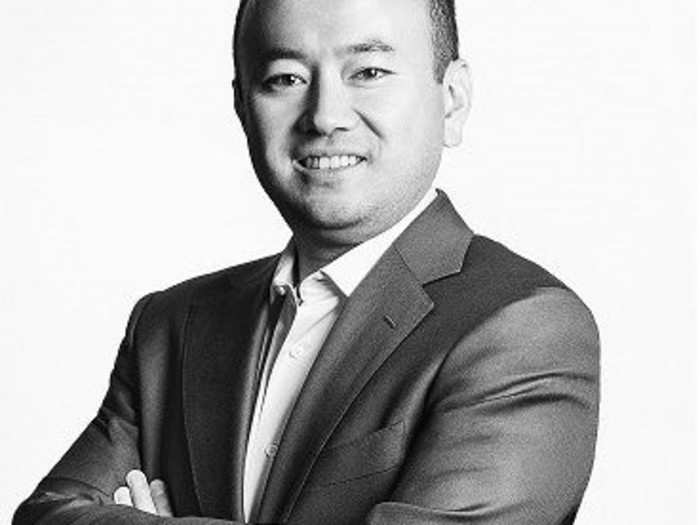
Michael Moro's Genesis Trading has been red hot, despite the deflation in the crypto market.
The average trade for the over-the-counter crypto trader has grown to $350,000, and its brand-new lending arm, Genesis Capital, has onboarded over 60 clients and has $100 million on its loan book, Business Insider first reported. On the trading side, the firm can do about $1 billion worth of trades in a month.
The New York-based firm, which trades purely in spot cryptocurrency markets, used to be known as SecondMarket. Moro joined SecondMarket in 2008 as a vice president. The firm rebranded in 2015, and Moro became chief executive officer of Genesis in 2016.
Before joining SecondMarket, Moro was an investment banker at Citigroup.
Michael Oved, AirSwap

Michael Oved, a former trader at Virtu, the high-frequency-trading firm, founded AirSwap, a decentralized exchange, to provide a platform for buyers and sellers to meet anonymously.
It does this using smart contracts, a computer protocol based on Ethereum's blockchain technology that facilitates and enforces a contract or exchange.
The company, which is based in New York, raised $36 million in its initial coin offering.
At Virtu, Oved led an office in Asia where he managed trading across equities, futures, options, and other assets.
Ari Paul, BlockTower Capital
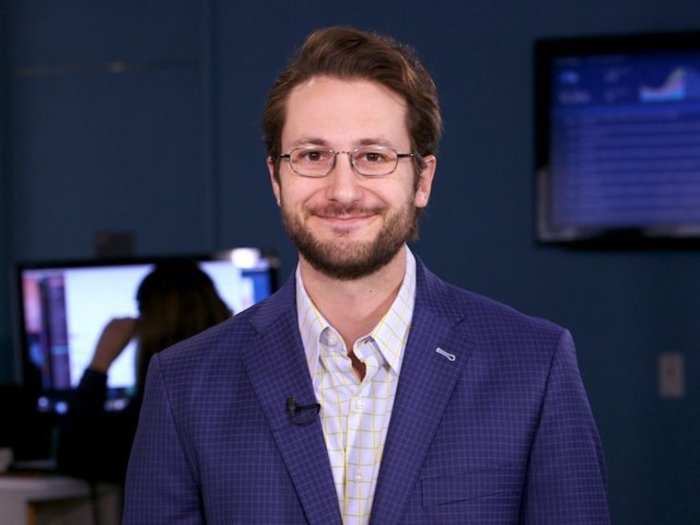
Ari Paul has quickly become one of the most sought-after voices in the crypto space since launching BlockTower Capital, a hedge-fund based in Connecticut.
BlockTower, which was launched by Paul and Matthew Goetz, made headlines in January when it was reported that the crypto fund had raised $140 million, with a number of VCs including Union Square and Andreessen Horowitz handing over cash, according to Bloomberg.
Paul, a former portfolio manger at the University of Chicago, got his start at Susquehanna. He was a derivatives trader at the firm for four years, according to his LinkedIn.
Anthony Pompliano, Morgan Creek
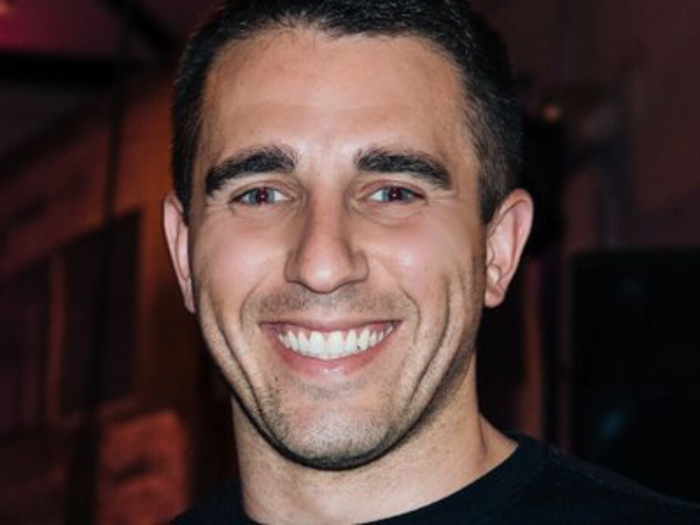
Morgan Creek's announcement that it was acquiring blockchain venture-capital fund Full Tilt Capital sent shock waves throughout the cryptocurrency world.
Founded by Mark Yusko in 2004, Morgan Creek already serves a number of institutions, endowments, and wealthy clients.Bloomberg first reported in March that the $1 billion hedge fund would acquire the North Carolina-based fund Full Tilt Capital founded by prolific tweeter and army veteran Anthony Pompliano.
The firm is aiming to raise $500 million for a new fund focused on blockchain investments, Bloomberg reported. Business Insider can now report that the firm is also looking into launching other funds, including a digital asset fund of funds, and buying and selling digital assets.
Pompliano, who worked as a product manager at Facebook, served in Operation Iraqi Freedom. The Bucknell graduate, founded Full Tilt alongside Jason Williams in 2016 as an early stage VC. The firm pivoted to blockchain in 2017.
Dave Schulz, Cboe Global Markets
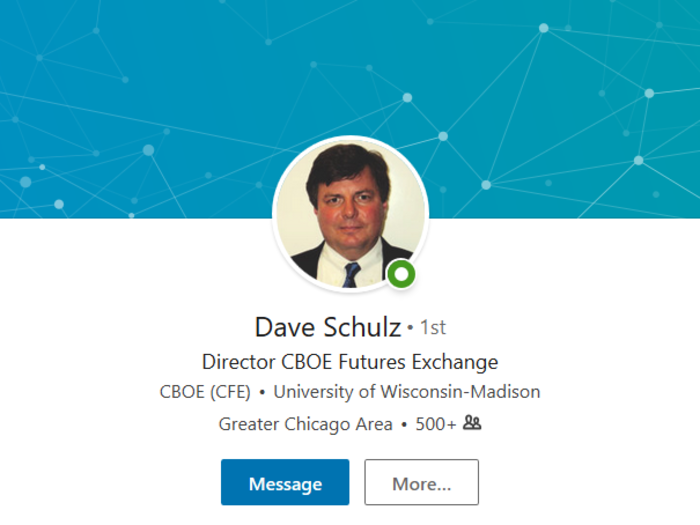
Behind Cboe's bitcoin futures is a 40-year veteran of Wall Street: Dave Schulz. He never thought he would get into cryptocurrencies, but got into crypto when Cboe Global Markets decided it would move forward with the launch of bitcoin futures.
Schulz, who joined the exchange as a consultant in 2012, was put in charge of the product's development, which included lining up market makers and working on the specs. Cboe has been a notable crypto advocate on Wall Street, teasing additional futures markets for other cryptocurrencies and calling on the Securities and Exchange Commission to approve bitcoin-linked ETFs, as Business Insider first reported.
Such products would fall under Schulz's jurisdiction. It is something he is looking at along with options, which could make sense for the exchange if there's the right customer demand.
Schulz got his start on Wall Street in the '80s at Lloyds Bank trading FX.
Garrett See, DV Trading
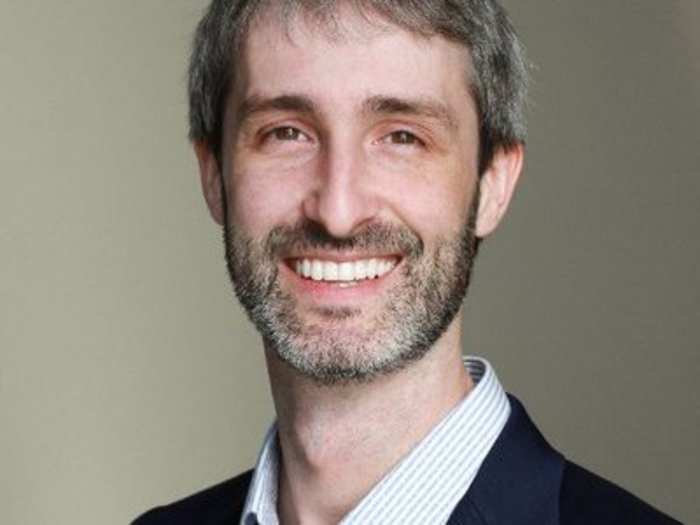
Garrett See is a man of firsts. He was the first person to trade equities at DV Trading. He was also the first person to trade crypto.
DV, which he joined in 2010, was founded as a derivatives trading platform. See launched the equities trading side of the business in 2012. In 2016, after building out the business and its middle- and back-office infrastructure, he became head of trading operations for the entire company.
That was the same year DV Chain, the cryptocurrency arm of the company, was launched by See.
At the beginning of 2017, just before the big crypto boom that defined last year, See started to devote all of his efforts to the new venture. He oversaw the business as it grew its number of counterparties to over 100 and its headcount to six traders and a dozen developers.
The University of Alabama-graduate worked at TransMarket, a prop-trading firm, before DV Trading.
Bart Smith, Susquehanna International Group
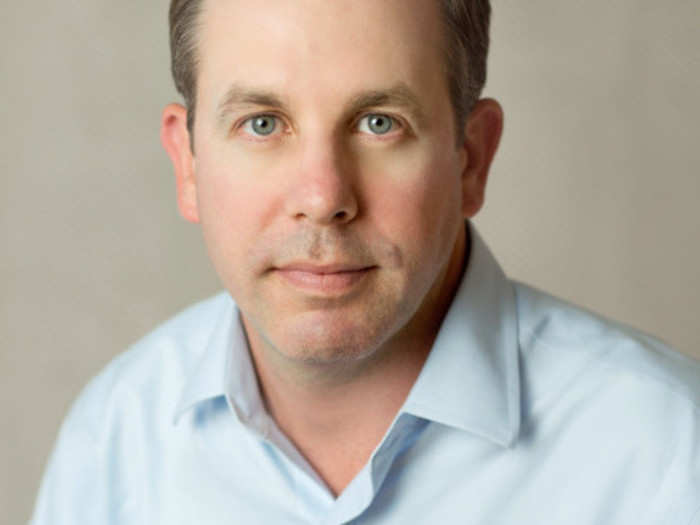
Bart Smith, cohead of the ETF Group at Susquehanna, is spearheading efforts in crypto for the firm. A graduate of Vanderbilt University, he joined Susquehanna in 2012. Previously, he held positions at AllianceBernstein and UBS.
Susquehanna has been involved in the crypto space for more than a year, having pushed the Securities and Exchange Commission on the Winklevoss' bitcoin exchange-traded fund. Smith has also served as a resource for asset managers looking to launch a bitcoin ETF.
Michael Sonnenshein, Grayscale Investments
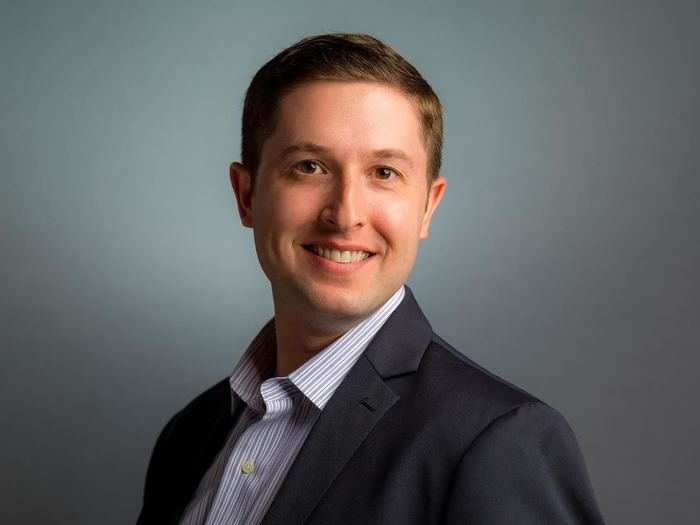
Michael Sonnenshein took a big chance when he left JPMorgan to join Grayscale, the bitcoin asset manager behind the Bitcoin Investment Trust. But he hasn't looked back.
Originally from New York, Sonnenshein traded everything from credit-default swaps to bonds to equities during his time on Wall Street. Still, having previously worked at Bank of America and Barclays, he wanted to join a smaller firm where he could have more influence when he left JPMorgan.
Ultimately he found his way to Grayscale, a now $2 billion asset manager, after connecting with the CEO in 2014.
Today, as managing director he is responsible for running the entire Grayscale team's day-to-day operations. The company's clients are mostly high-net-worth people, but the client list has grown over the last 18 month to include more institutional investors.
Sonnenshein spends much of his time these days with banks, broker dealers, hedge funds, and endowments, pitching them not only on his firm's eight different crypto-funds but also on how allocating a portion of an investor's portfolio to crypto can have a meaningful influence.
Hadley Stern, Fidelity
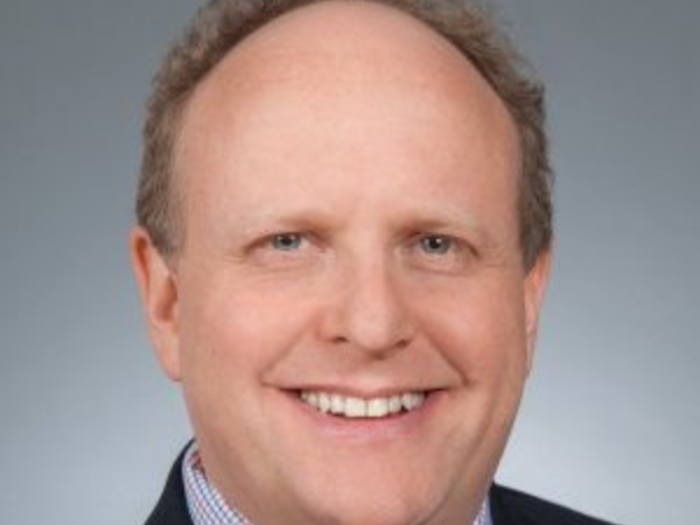
Fidelity is one of the biggest names on Wall Street publicly exploring how digital assets can play a role in their wealth management business.
The company allows its associates to buy lunch with bitcoin at certain company eateries. It has also invited experts such as Nick Szabo and Jerry Brito to speak with employees. Customers can check their crypto balances on Coinbase on Fidelity's website. At the helm of the company's Bitcoin, Blockchain, and Digital Currency Incubator is Hadley Stern. The initiative, which is based out of Boston, explores new bitcoin and crypto products and ideas.
Stern, an author and inventor with over 10 patents, joined Fidelity in 2001. He's led the incubator since 2015. Previously, he held roles at Rykodisc and Malcolm Grear Designers.
Kim Trautmann, DRW
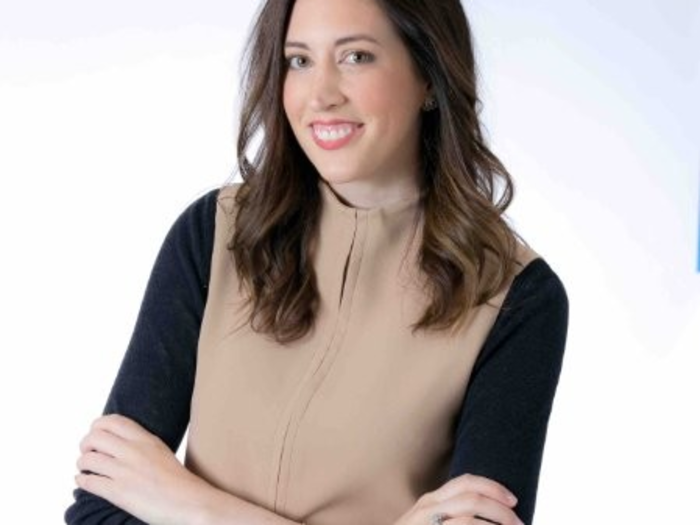
Kimberly Trautmann, director of DRW Venture Capital, was first introduced to bitcoin during an investor meeting in 2013. Since then, she's been hooked.
In her role, she is identifying the companies in the cryptocurrency ecosystem that can help push the burgeoning asset class into the mainstream. Of course, she is also looking for investments that'll deliver outsized returns for DRW.
The current portfolio of companies Trautmann oversees includes more than 25 investments.
Trautmann joined DRW in 2016. She came from Goldman Sachs, where she served as a vice president of principal strategic investments. Then she invested in companies such as Pico, Kensho, Circle and Symphony.
Trautmann also worked at Citigroup in sales and trading.
Kyle Tuskey, Deep Systems

Kyle Tuskey knows trading tech inside and out.
Prior to joining Deep Systems in 2017 as chief operating officer, he spent much of his career building algorithmic trading systems for a number of firms. He got his start as an engineer at Archipelago, which is now NYSE Arca. He also ran an options market making division of Cohen Group.
He oversees the development of Deep System's trading tech aimed at prop trading firms and banks. Recently, the firm has dived into crypto via Indigo, a trading platform that allows clients to trade across cryptocurrency markets. It is rolling out in April.
Tuskey managed the teams at Deep Systems that worked on the development of the project.
Michael Unetich, Trading Technologies
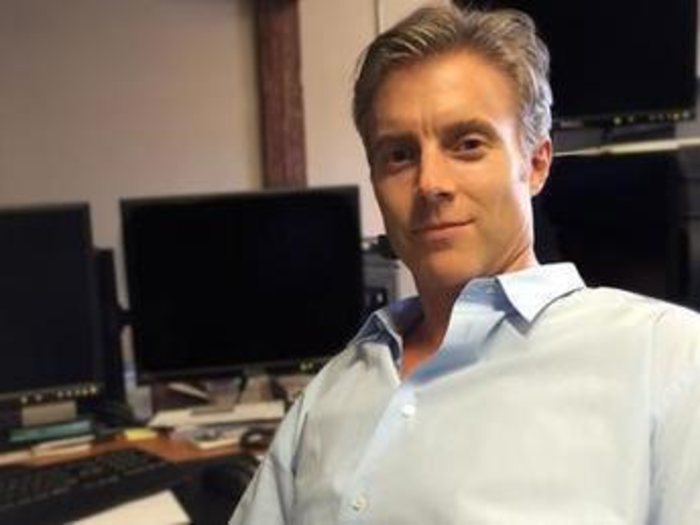
When Michael Unetich got into trading crypto in early 2017, he was frustrated with the lack of Wall Street-grade trading tools in the space. That frustration pushed him to rejoin Trading Technologies, a trading technology provider, in late 2017 to head up the firm's efforts in the nascent market for digital coins.
As vice president of cryptocurrencies at the Chicago-based firm, Unetich played an integral role in a partnership between the firm and Coinbase, the cryptocurrency exchange operator. The partnership allows professional traders to trade bitcoin on Coinbase' GDAX and bitcoin futures side-by-side on TT's signature platform. Unetich has also been spearheading the build-out of a crypto trading platform aimed at retail traders, a move Business Insider first reported.
Unetich first joined TT in 2010 as a product manager after it acquired his company TickIt Trading Systems. Prior to TickIt, Unetich ran his own prop-shop, Unetich Trading, from 2002 to 2009. He booted Unetich Trading back up for two years in late 2015.
Julie Winkler, CME
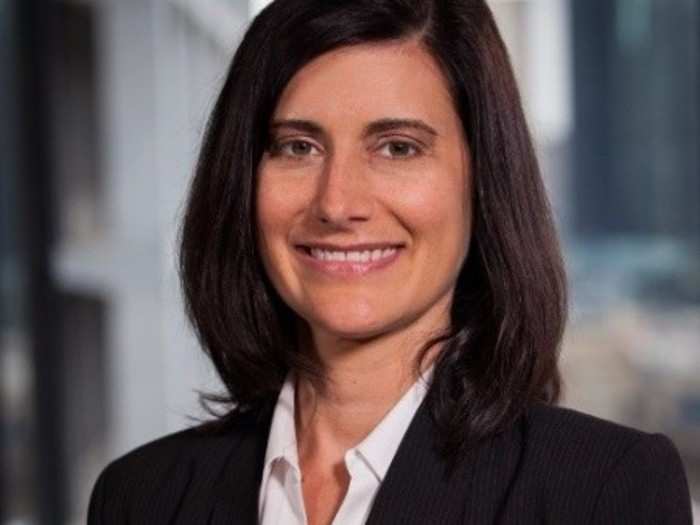
CME's chief commercial officer, Julie Winkler, is the brains behind all research and development in digital assets and blockchain technology.
Winkler, in coordination with TimMcCourt's team, laid the foundation for the bitcoin futures product. She led groups that developed CME's Bitcoin Reference Rate and bitcoin futures.
Winkler, who has been with the exchange operator since 2007, was introduced to the tech side of trading when she was a business operations manager for Chicago Board of Trade, a futures platform acquired by CME in 2007. During that time, she designed products that tried to bring together the best aspects of human trading in the pit and electronic trading. She started her career at CBOT in 1996.
Adam White, Coinbase
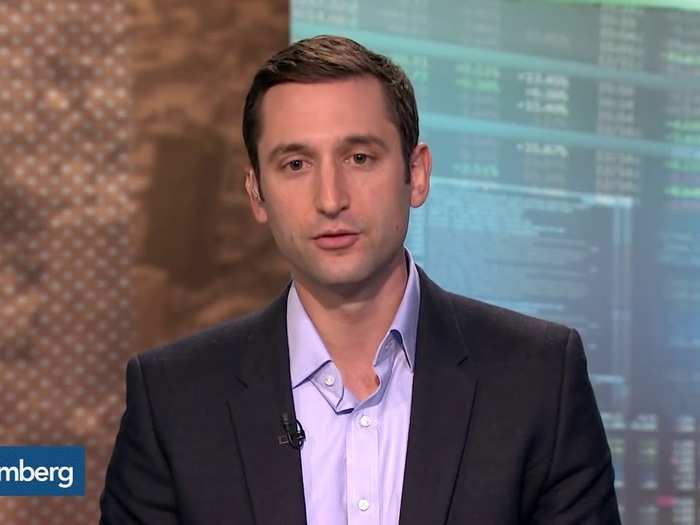
Adam White, general manager at Coinbase, vividly recalls trying to write about bitcoin while he was a student at Harvard Business School during the early days of crypto. Each attempt was met with the same response from professors: "This is not a subject of academic caliber."
That curiosity, however, paid off for the former Air Force captain and Operation Iraqi Freedom and Operation Enduring Freedom veteran. After a stint at Activision Blizzard, he joined Coinbase as its fifth employee to head up business development, a position that then encompassed marketing, sales, and product management.
Today, he oversees the entire institutional-focused side of Coinbase's business, including its GDAX exchange.
It wasn't until 2014, when Coinbase launched its secretive Project Moonbase — the precursor to Coinbase's institutional-grade exchange — that White dove into the world of market structure and heavy-duty trading technology. At the time, Coinbase was one of the largest brokers for cryptocurrency, but it relied on different exchanges for sources of liquidity.
Under White's leadership, GDAX became one of the largest exchanges by the summer of 2016. And then at the end of that year, just before things really took off in crypto, White focused his efforts on attracting Wall Street clients: brokerages, large global banks, and hedge funds. Moving forward, White's focus is to continue to win institutional business with new products such as Coinbase's custodian.
Joseph Weinberg, Paycase Financial

The best ideas can come from the strangest places. Joseph Weinberg's came from living in the Peruvian Amazon for a year and a half. During that time, which required him to live on Western Union money transfers, he got to know what it was like to be unbanked.
That experience inspired him to launched Paycase Financial in 2014, an operator of a blockchain-based remittance service.
It's also the company behind one of the first crypto brokerage desks run by an exchange. Paycase recently announced its partnership with a subsidiary of TMX Group, a Canadian exchange operator. TMX will be the primary broker on all the trades, whereas Paycase will train those that sit on the desk and connect it with folks from the crypto world.
Weinberg got his start in the crypto world in 2015 at Coinsetter, a cryptocurrency exchange, that in 2016 was sold to San Francisco-based Kraken. However, Weiberg started investing in crypto in 2011. Prior to Coinsetter, Weinberg worked as a mobile analyst at Xtreme Labs, a developer of mobile applications.
Christopher Yoshida, trueEx
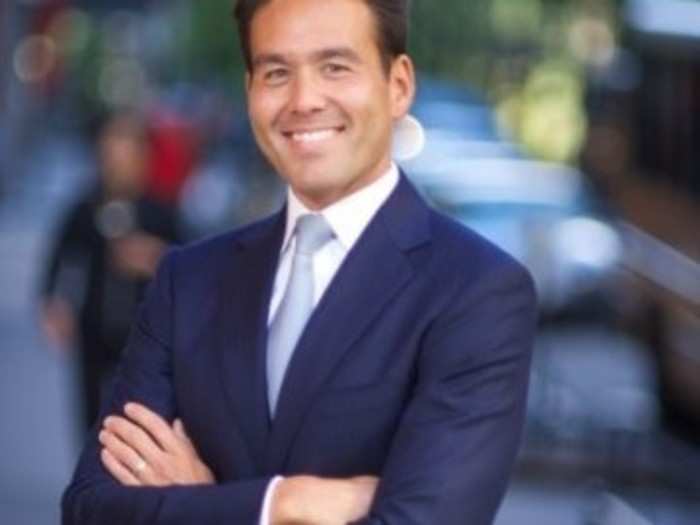
Christopher Yoshida, the chief strategy, sales and marketing officer at trading firm trueEx, has been busy with client meetings following the company's announcement that it is launching a derivatives platform for digital currencies. Part of Yoshida's job is to push the new platform to a wide range of Wall Street firms.
TrueDigital, which will list non-deliverable forward contracts for cryptocurrencies, is pending regulatory review. It would join a number of markets trading crypto-linked derivatives, including the bitcoin futures markets on Cboe and CME. The platform, which Yoshida is hiring to build out, is expected to make its first trade in the next three months. Currently, the company is streaming data for the platform from market makers.
The company also has three new products in stealth-mode, including a cryptocurrency exchange, a clearing mechanism for the cryptocurrency space, and a custodian product.
TrueEx, which was founded by famed trader Sahil Hirani in 2010, already facilitates trading for interest rates swaps.
Yoshida joined trueEx in 2017 from Deutsche Bank, where he most recently was global head of interest rate sales. Prior to Deutsch Bank, he worked at Morgan Stanley from 2003 to 2014 in roles spanning structured credit to global macro.
Popular Right Now
Popular Keywords
Advertisement